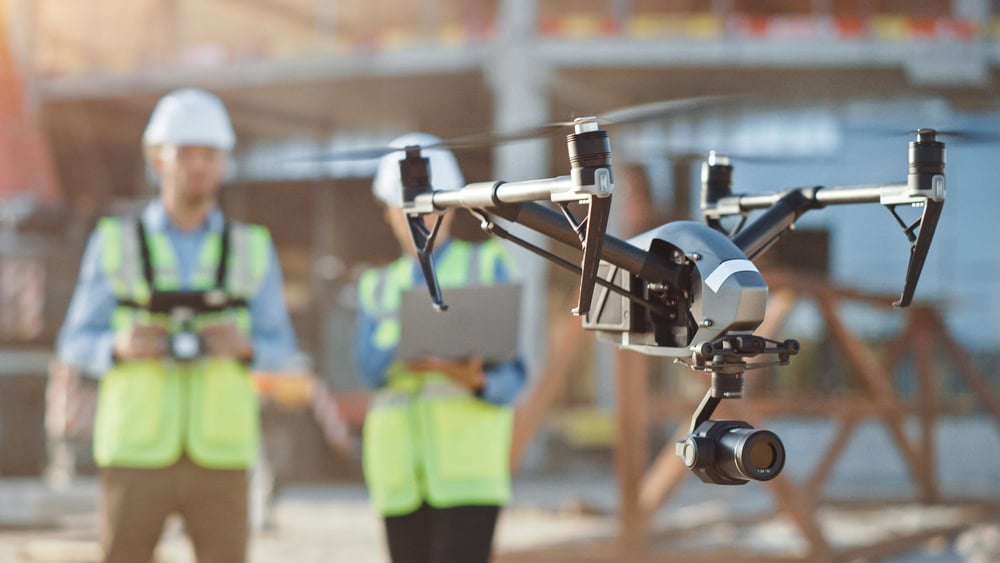The Internet of Things (IoT) is revolutionizing industries worldwide, and construction is no exception. Smart construction, powered by IoT, is transforming how projects are designed, executed, and managed, leading to increased efficiency, safety, and profitability. This article explores the impact of IoT on the construction industry and provides practical tips for contractors to integrate IoT technologies into their operations.
Understanding IoT in Construction
What is IoT?
The Internet of Things (IoT) refers to a network of interconnected devices that collect and exchange data. In the context of construction, IoT devices include sensors, wearables, drones, and machinery that communicate in real time to optimize various aspects of the construction process.
Benefits of IoT in Construction
IoT offers numerous benefits for the construction industry, including:
- Enhanced Productivity: Real-time data collection and analysis help streamline workflows and reduce downtime.
- Improved Safety: IoT devices monitor site conditions and worker health to prevent accidents and injuries.
- Cost Savings: Optimized resource use and predictive maintenance reduce operational costs.
- Better Decision-Making: Data-driven insights enable more informed decisions and proactive problem-solving.
Key IoT Technologies in Construction
Smart Sensors
Smart sensors are embedded in construction equipment and structures to monitor various parameters such as temperature, humidity, vibration, and structural integrity. These sensors provide real-time data that helps in predictive maintenance and quality control.
- Bosch Smart Sensors for industrial applications.
- Smart Concrete Sensors by Giatec for monitoring concrete strength and quality.
Wearable Devices
Wearable devices, such as smart helmets, vests, and glasses, enhance worker safety and productivity. These devices can monitor vital signs, track movements, and provide augmented reality (AR) support for complex tasks.
- Smart Helmets by DAQRI for augmented reality and safety.
- Wearable Safety Solutions by Guardhat for worker health and safety monitoring.
Drones
Drones equipped with cameras and sensors are used for site surveys, progress monitoring, and inspections. They provide high-resolution images and 3D models, enabling better planning and decision-making.
- DJI Drones for Construction for aerial imaging and mapping.
- SenseFly Drones for high-precision surveying and inspections.
Connected Machinery
IoT-enabled machinery and equipment can communicate with each other and central management systems. This connectivity allows for real-time monitoring, remote control, and predictive maintenance, reducing downtime and improving efficiency.
- Caterpillar Connected Equipment for construction machinery.
- Komatsu Smart Construction for integrated solutions.
Building Information Modeling (BIM)
BIM integrates IoT data to create detailed digital models of construction projects. These models provide insights into the project lifecycle, from design and construction to maintenance and operation.
- Autodesk BIM 360 for comprehensive BIM solutions.
- Bentley Systems for BIM applications in construction.
Practical Tips for Contractors
Start Small
Begin by integrating IoT technologies into specific areas of your operations. For example, start with smart sensors for monitoring concrete curing or wearables for worker safety. Gradually expand as you become more comfortable with the technology.
- IoT Starter Kits from SparkFun for hands-on learning.
- Adafruit IoT Learning Resources for tutorials and guides.
Invest in Training
Ensure that your team understands how to use IoT devices and interpret the data they generate. Provide training and support to help them adapt to new technologies.
- LinkedIn Learning IoT Courses for professional development.
- Coursera IoT Specialization for comprehensive learning.
Partner with Technology Providers
Collaborate with IoT technology providers to implement solutions tailored to your needs. These partnerships can offer valuable support and expertise, ensuring a smooth integration process.
- IBM IoT for Construction for industry-specific solutions.
- Microsoft Azure IoT for scalable IoT platforms.
Focus on Data Security
With the increase in connected devices, data security becomes paramount. Implement robust cybersecurity measures to protect your data and ensure compliance with relevant regulations.
- IoT Security Guidelines by ENISA.
- NIST Cybersecurity Framework for comprehensive security practices.
Monitor and Evaluate
Continuously monitor the performance of your IoT solutions and evaluate their impact on your operations. Use the insights gained to refine your strategies and achieve better results.
- Google Analytics for IoT for data analysis and insights.
- Tableau for Data Visualization for comprehensive data analysis.
Case Studies
Skanska
Skanska, a leading construction company, has integrated IoT into its operations to improve safety and efficiency. The company uses smart helmets, wearable sensors, and connected machinery to monitor worker health, site conditions, and equipment performance.
- Skanska’s Digital Transformation for detailed insights.
Laing O’Rourke
Laing O’Rourke leverages IoT and BIM to enhance project management and execution. The company uses drones for site surveys, smart sensors for quality control, and BIM for integrated project planning.
- Laing O’Rourke’s Digital Engineering for their approach to digital construction.
IoT is transforming the construction industry, offering numerous benefits in terms of efficiency, safety, and cost savings. By integrating IoT technologies such as smart sensors, wearable devices, drones, connected machinery, and BIM, contractors can enhance their operations and stay competitive in a rapidly evolving market.
Starting small, investing in training, partnering with technology providers, focusing on data security, and continuously monitoring and evaluating performance are essential steps for contractors looking to embrace IoT. The future of construction is smart, and those who leverage these technologies will lead the way in innovation and success.
For further resources and updates on IoT in construction, visit:

